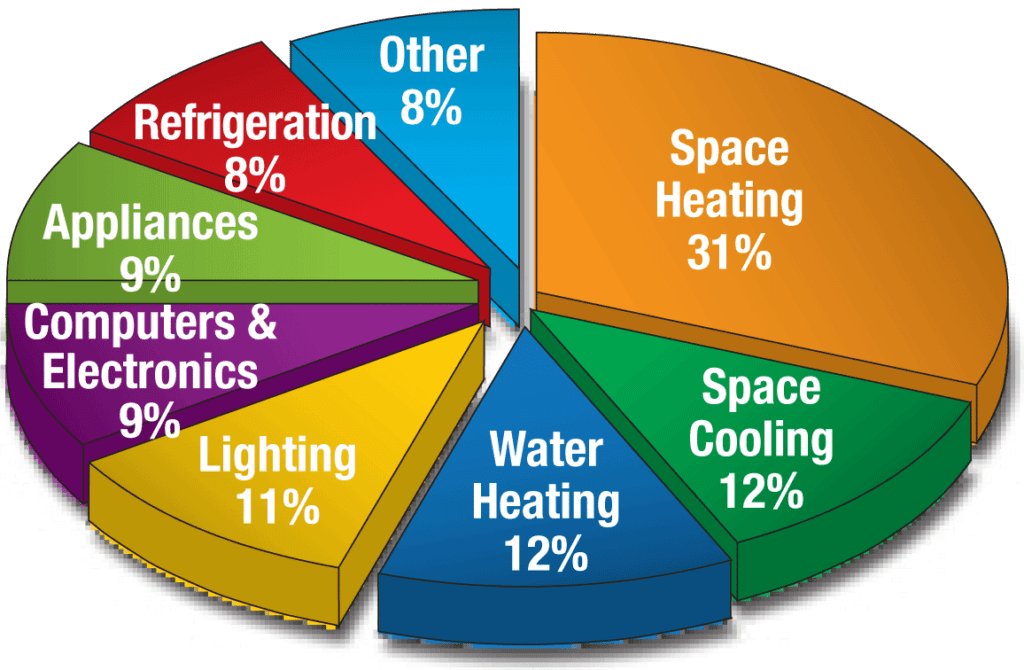 Not many businesses encourage you to use less of their product, but MVEC is a not-for-profit cooperative — we exist to serve you. Learn what you can do to save both energy and money.
Not many businesses encourage you to use less of their product, but MVEC is a not-for-profit cooperative — we exist to serve you. Learn what you can do to save both energy and money.
Ways to Save
The cooperative has set aside funds to help members (with a good MVEC credit score) finance an energy efficiency project at a low 3.5% interest rate.
See if you qualify for an ERC loanIf electric heating is the primary source of heating at your home, you are eligible to not pay sales tax on that electric usage for the months of November to April. Portable heaters are not considered primary heating sources.
For those residential and farm accounts whose home is heated by electricity, who are eligible and billed through one meter, the total electric consumption for the months listed above is exempt from sales tax. For those residences where the heat is metered separately, only that portion is exempt.
If you have questions regarding your eligibility for sales tax exemptions, please contact the Minnesota Department of Revenue at (651) 296-6181 or toll free at 1-800-657-3777 or email Minnesota Department of Revenue.
By submitting this form, you certify that you use electric as your PRIMARY source of residential heating.
Sales Tax Exemption ApplicationMVEC believes that an energy dollar saved – electrical or otherwise – is good.
Tips to reduce energy consumption and save on your energy bills:
- Energy Wise Programs – join an Energy Wise Program and see savings with bill credits and reduced electric rates.
- Monitor your energy use with SmartHub to spot trends and sudden changes.
- Weatherize by checking insulation levels and seal air leaks.
- Schedule seasonal tune-ups for your furnace and air conditioner.
- Close off rooms not in use, turn down thermostat settings and consider a WiFi thermostat which can be programmed to automatically control your cooling and heating.
 Reduce hot water use by installing low flow shower heads and aerators. Hot water use can account for 30-40 percent of household electrical usage. If your water tank is located in a cold space, be sure to wrap the tank.
Reduce hot water use by installing low flow shower heads and aerators. Hot water use can account for 30-40 percent of household electrical usage. If your water tank is located in a cold space, be sure to wrap the tank.- Turn off lights when not in use. After heating and hot water, lighting is the next highest energy cost.
- Install energy-efficient lamps and fixtures in areas of your home where usage is three hours per day or more. LED bulbs are currently the most efficient.
- Purchase energy-efficient appliances. MVEC has rebates for Energy Star appliances and appliances with low Energy Guide ratings.
- Consolidate refrigeration. One full unit is better than two partially filled. Check and replace worn door gaskets and clean the grills and coils regularly. Refrigeration can account for as much as 18 percent of a home’s usage. If the refrigerator was manufactured before 1995, consider a newer energy-efficient model.
- Turn off TVs, stereos, computers, monitors and cell phone chargers when not in use. Many appliances have a standby or “phantom” use that adds to energy usage in the home.
Federal Funding Sources
In 2022, the Inflation Reduction Act (IRA) was signed into law. Among other items, the 10-year bill aims to invest in clean energy production and reduce carbon emissions in the United States.
The new legislation offers benefits available for new construction, remodeling, updating equipment, transportation and more within the energy sector. MVEC is here to work with its members through IRA-related projects.
For more information, see the list of current resources below:
Please note, information regarding the IRA is constantly being updated. We will share more information as it becomes available to us.
- National Rural Electric Cooperative Association (NRECA) Inflation Reduction Act of 2022 Information
- IRS Fact Sheet regarding frequently asked questions about energy efficient home improvements and residential clean energy property credits
- National Resources Defense Council (NRDC) Consumer Guide to the Inflation Reduction Act
- Rewiring America: Go electric! Digital Guide
